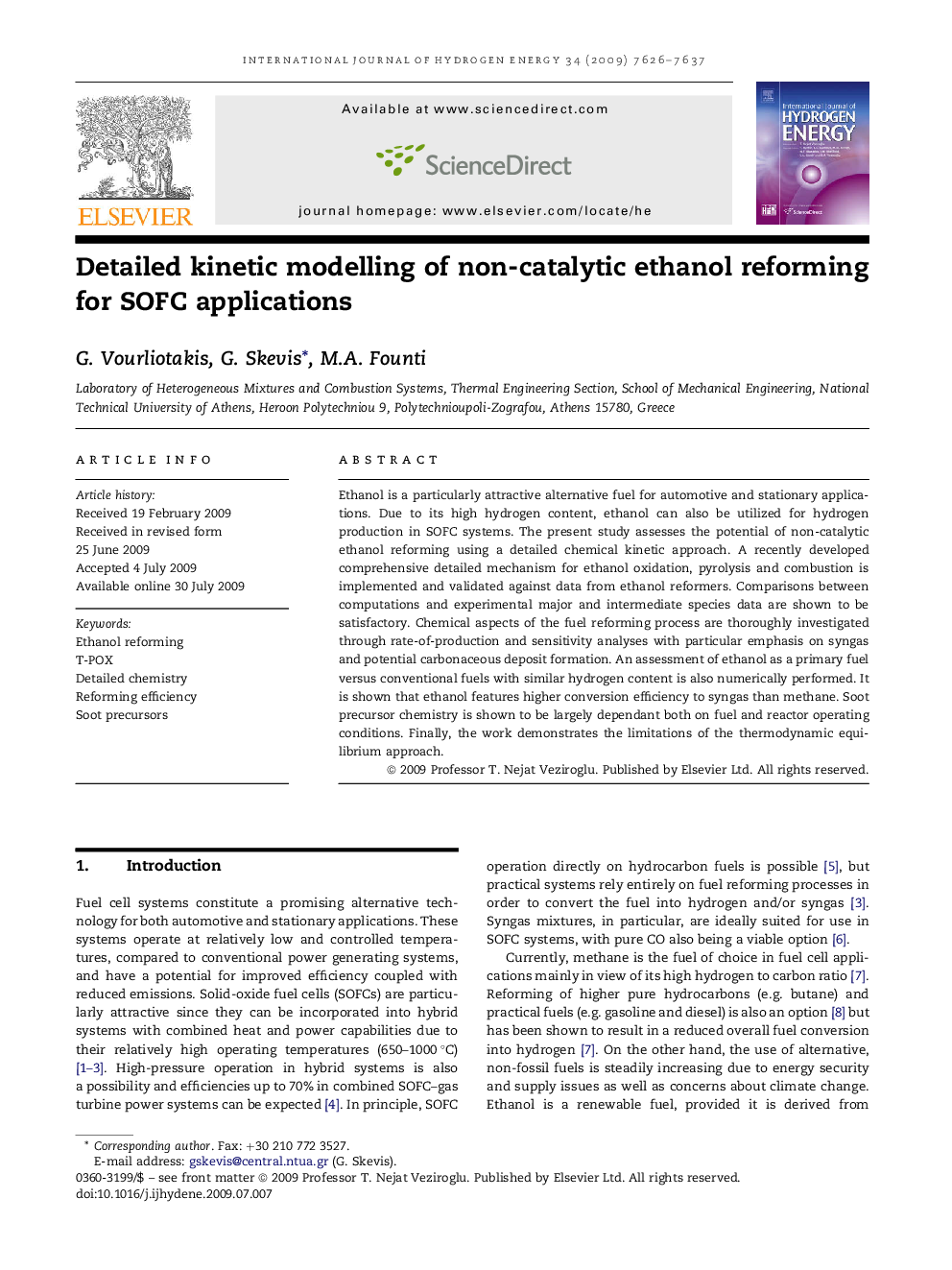| Article ID | Journal | Published Year | Pages | File Type |
|---|---|---|---|---|
| 1277404 | International Journal of Hydrogen Energy | 2009 | 12 Pages |
Abstract
Ethanol is a particularly attractive alternative fuel for automotive and stationary applications. Due to its high hydrogen content, ethanol can also be utilized for hydrogen production in SOFC systems. The present study assesses the potential of non-catalytic ethanol reforming using a detailed chemical kinetic approach. A recently developed comprehensive detailed mechanism for ethanol oxidation, pyrolysis and combustion is implemented and validated against data from ethanol reformers. Comparisons between computations and experimental major and intermediate species data are shown to be satisfactory. Chemical aspects of the fuel reforming process are thoroughly investigated through rate-of-production and sensitivity analyses with particular emphasis on syngas and potential carbonaceous deposit formation. An assessment of ethanol as a primary fuel versus conventional fuels with similar hydrogen content is also numerically performed. It is shown that ethanol features higher conversion efficiency to syngas than methane. Soot precursor chemistry is shown to be largely dependant both on fuel and reactor operating conditions. Finally, the work demonstrates the limitations of the thermodynamic equilibrium approach.
Related Topics
Physical Sciences and Engineering
Chemistry
Electrochemistry
Authors
G. Vourliotakis, G. Skevis, M.A. Founti,
